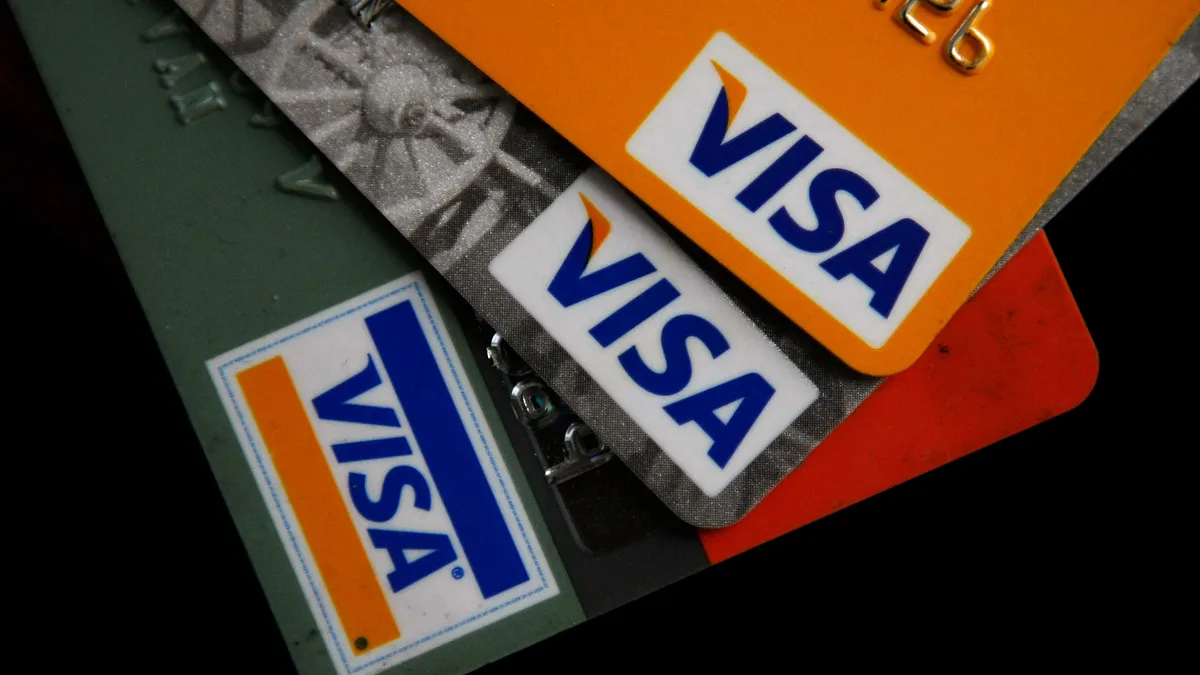Buy now-pay later is booming, and card giant Visa wants the world to know that the new installment trend will be growing on its network.
While BNPL providers, such as the Swedish Klarna and Australian Afterpay, have been creating a worldwide following for letting consumers pay for goods and services installments, the U.S. market is just catching on now. Still, San Francisco-based Visa's executives contended during a fiscal fourth-quarter earnings call Tuesday that the card company is frequently behind the scenes processing those payments, and allowing the new entrants to scale.
"We're seeing many, many of these players use us and use our credentials, whether they're virtual cards or debit or credit cards, to actually pay off the various installments," Visa CEO Al Kelly said during the call with analysts. "And so we're getting — instead of one transaction, you know, we're getting four transactions. And certainly, that's very good for us."
Kelly said ultimately BNPL providers will have difficulty scaling their product worldwide without tapping Visa's extensive routing and merchant network.
"What I think is going to happen is that BNPL players will become issuers who will issue Visa credentials that will have their value proposition for installments embedded within the product itself so that they can, therefore, scale very, very quickly" and connect to the millions of merchants who use Visa, Kelly said on the call.
"That's what I believe, based on history, is going to happen. And that's what I'm referring to when I say BNPL 2.0," Kelly added.
By 2026, BNPL transactions are expected to soar to $995 billion, up from an estimated $226 billion in 2021, according to a recent report by Juniper Research. While new competitors are driving the BNPL trend, legacy players, such as rival Mastercard, are also getting into the act.
Visa very much wants to capitalize on the growing trend. Today, it issued a release detailing the ways in which it's participating in the craze, from the banks that it's partnering with to offer such services, to the BNPL players like Klarna that it's investing in to be at the forefront of the trend.
Much of the information in the release had been previously disclosed, although Visa did point to a new "global brand deal" signed with Klarna this week. Still, it provided few details on that latest Klarna agreement that extended a prior agreement. When asked about the pact, a spokesperson for Klarna declined comment and a spokesperson for Visa declined to specify the new markets that the extension adds.
As if to underscore the point that it's not being left behind by the new BNPL consumer payments binge, Visa on Tuesday reported fiscal year 2021 revenue rose 10% to $24 billion, relative to the prior year, and net income jumped 13% to $12.3 billion.













